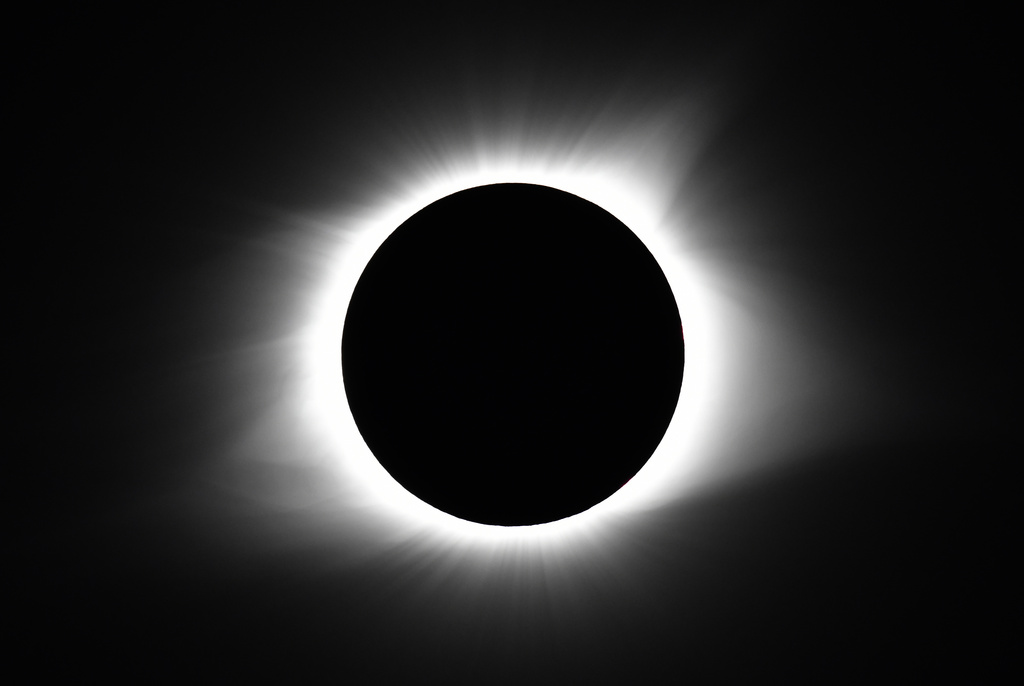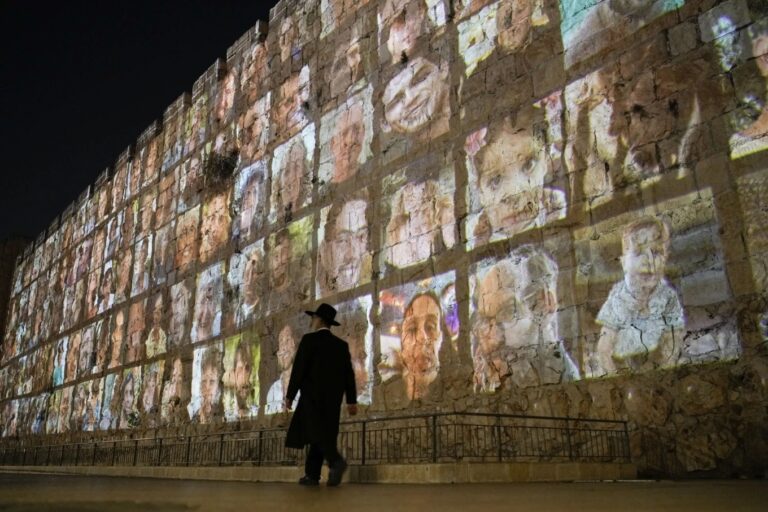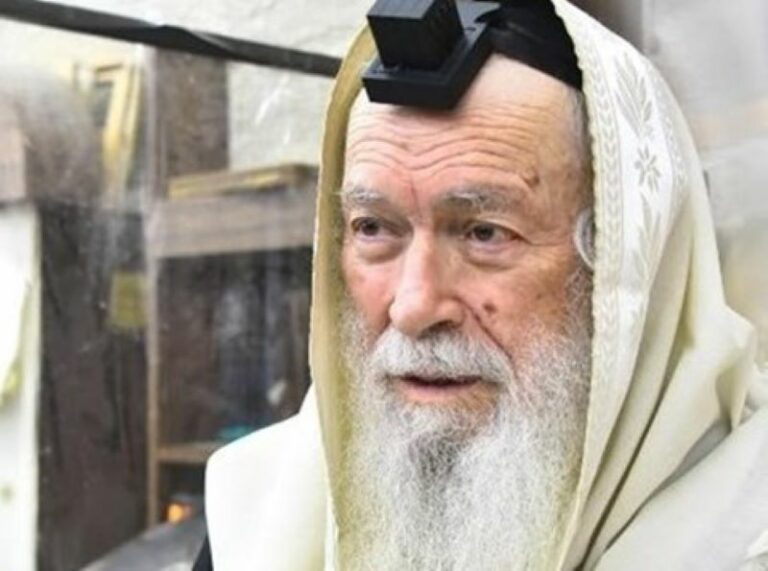(By Rabbi Yair Hoffman)
Every aspect of life should lead to growth. There are life lessons in everything. The impending solar eclipse is no exception. After this brief overview, a short presentation of the life lessons we can learn will be made.
SAFETY
First and foremost is the issue of safety. Looking at the sun either during the eclipse or not during the eclipse can and will cause something called solar retinopathy — permanent damage to the retina. Anyone who stares at the sun can get a permanent blind spot in the eye. This involves the Mitzvah of “veNishmartem me’od b’nafshosaichem (Dvarim 4:9) – the Mitzvah of protecting our health and well-being. There is also a lesser-known second Mitzvah. The verse later on (Dvarim 4:15), “Rak hishamer lecha” is understood by most Poskim to actually comprise an actual second Mitzvah (See Rav Chaim Kanievsky Shlita Shaar HaTeshuvos #25) – to take special care. There is also a third Mitzvah, “V’Chai Bahem – And you shall live by them” (VaYikra 18:5).
BAD OMEN
The Gemorah in Sukkah (29a) tells us that solar outages are a bad omen for the umos haolam and lunar outages are a bad omen for sonayehem shel yisroel – a euphemism for klal yisroel. Many commentaries explain that this outage is an eclipse. This is the view of the Aruch LaNer, and it seems is also the view of the Chofetz Chaim.
The Chofetz Chaim was of the opinion that it was a bad omen for the nations of the world because it demonstrated that the sun too, is not a deity – but rather a creation of a Creator. This brought the Chofetz Chaim much happiness. The life lesson here is that kavod shamayim the honor of Heaven should be utmost in our minds.
PART OF NATURE
Regarding the question as to how it could be considered a bad omen – when it is a mathematically predictable celestial cycle, the Meforshim have explained that Chazal were referring to the fact that these time periods are times of din – strict judgement rather than rachamim – periods of tremendous Divine Mercy.
COULD BE SUNSPOTS
There is also a strong possibility that the meaning of the Gemora refers to a sun spot. In this author’s reading, this is the view of the Yaaros Dvash (Vol. II p. 67 “aval)– Rav Yomasan Eibeshitz and the Ben Yehoyadah.
Sunspots appear occasionally on the sun’s surface that appear as spots darker than the surrounding areas. They are regions on the where there is a lower surface temperature. What causes this reduced temperature? Apparently there are concentrations of magnetic field flux that limit the heat that comes via convection. Sunspots usually appear in pairs of opposite magnetic polarity. The number of sunspots vary and follow an 11-year solar cycle.
Some sunspots may last a few days. Others last a few months. If we learn that the Gemorah is referring to sunspots then the corollary for moon must be moon spots, which are different in nature than sun spots. There are great life lessons here in our witnessing the nifla’os haBoreh. Hashem, in His infinite wisdom created the marvels of the heavens – and it is something should inspire us and strike us with awe.
WHO IT IS BAD FOR
There are, however, three girsa’os or versions of who the solar eclipse are a bad omen for. It is either the umos haolam (the gemorah in Sukkah) , to all the people of the world (Yalkut Shimoni 285), or to ovdei kochavim (See Rabbeinu Chananel’s Girsah in Sukkah) or to all creations of the world.
THE FOUR REASONS WHY THE SUN IS STRICKEN
The Gemorah provides four reasons why, in fact, the sun is stricken. Rashi explains that he is at a loss for an explanation as to why these four reasons are presented. However, other commentators do attempt to provide such explanations. One life lesson here is to emulate Rashi’s incredible humility. When he did not know something – he readily admitted it. And this was Rashi – Klal Yisroel’s greatest commentator.
The four reasons that the Gemorah gives are:
1] Because of an Av Beis Din who passed away and was not eulogized properly. When a tsaddik is eulogized properly the loss of his sunshine is counterbalanced by the Teshuvah that his eulogy had sparked. When he is not eulogized properly – it does not cause the necessary Teshuvah and so his light has been darkened (See Aruch laNer). – The life lesson is that when our Tzaddikim pass away – we should cry over our loss and do Teshuvah. We should grab their middos and emulate them.
2] On account of a Naarah m’urasa who let out a scream in the city in the daytime and no one came to her rescue. The Maharsha explains that her scream was as clear as day and yet no one came to her rescue. Thus the daylight is stricken. The life lesson here is that we cannot allow the screams of those who are molested and abused to go unheard. Sweeping abuse under the carpet as we are guilty of – is a crime that the Gemorah tells us causes the very sun in the sky to be stricken.
3] On account of relationships that should not be made physical. This was the cause of the flood during Noach’s time where the sun did not shone for them – so here to the sun is stricken (Aruch LaNer). The life lesson here is that we must take these things much more seriously because they cause so much pain and damage to others.
4] On account of two brothers whose blood is spilled as one. It seems that the life lesson here is that when two members of a family suffer – the conseuences are much more far-reaching than we can imagine. We must therefore show more empathy and act on it even more.
THE SEVEN LIFE LESSONS
It seems that there seven life lessons that we can all derive from the events and the discussions surrounding this solar eclipse.
1] To take safety precautions in this matter as well as all other dangerous areas. There are three Mitzvos involved in this.
2] To be aware of the remarkable nifla’os haborei and to increase our emunah from it.
3] to see and emulate Rashi’s incredible humility in readily admitting that he did not know an explanation as to why the Gemorah chose these four reasons for tehe clipse (or the solar spots).
4] To appreciate the qualities of the gedolim and great leaders that we have lost – and to emulate their fine qualities.
5] To listen to the cries of the abused and the molested and to empathize with them – and not, chas v’shalom to ostracize them and their families, but rather to help them to prevent further abuses.
6] Not to make physical relationships that should not be made physical and to emphasize this. Our not talking about these things has had devastating results. Chazal took the time to mention this in the Gemorah in Sukkah 29a – why can’t we?
7] To empathize with those families that have been doubly stricken – that have had two children fall – and to give them the attention, empathy and care that they deserve.
These are seven clear lessons that we can learn from the darkness that will come today.
The author can be reached at [email protected]







4 Responses
Granted that we use euphemisms when describing certain delicate matters, but I think the author of this article went too far when he explained the term “mishkav zachar” as ” Not to make physical relationships that should not be made physical.” The literal meaning of the Hebrew mans “lying with a man.” If the Torah does not use a euphemism to describe homosexuality, then who are we to use one. His description is so unclear as to make no sense.
Edited: Granted that we use euphemisms when describing certain delicate matters, but I think the author of this article went too far when he explained the term “mishkav zachar” as ” Not to make physical relationships that should not be made physical.” The literal meaning of the Hebrew means “lying with a man.” If the Torah does not use a euphemism to describe homosexuality, then who are we to use one. His description is so unclear as to make no sense.
The Scientific nature of an eclipse was well known well before the time of Avraham Aveinu (as was the information need for the Luni-Solar calendar we have used). The people in Shinhar (Sumeria) had schedules of eclipses, and Avraham Aveinu was born during Sumeria’s last gasps. You need to be from an extremely backwards pre-literature culture to think it is something scary and mystical – which is why Hollywood acted as if people should get shocked by an eclipse (Hollywood has always been pushing the idea that religious people believe mainly in superstition, so they “covered up” that even Avraham Aveinu knew what an eclipse was).
Mordy:
Thank you.
Euphemisms that almost totally obscure the actual meaning should obviously not be used.